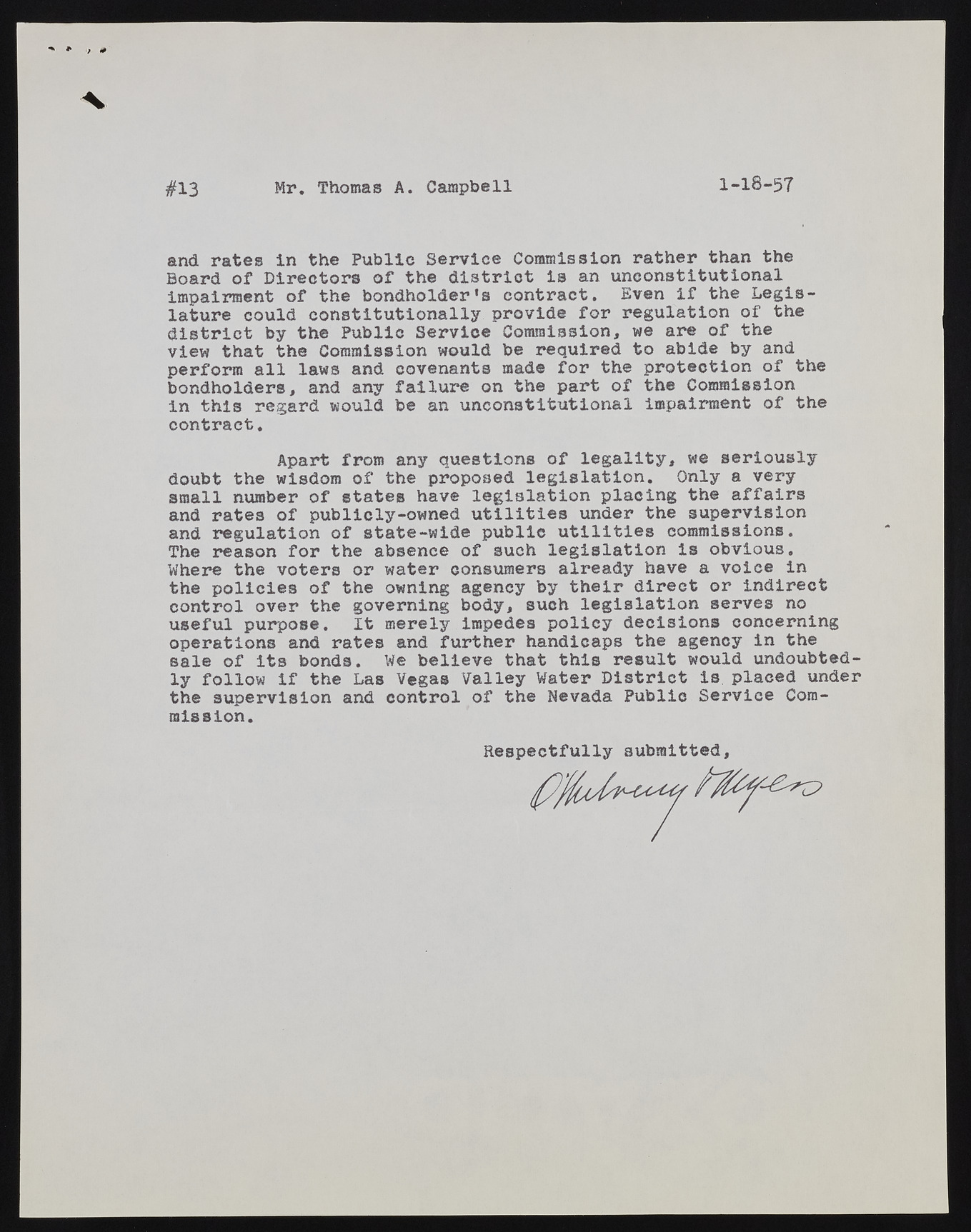Copyright & Fair-use Agreement
UNLV Special Collections provides copies of materials to facilitate private study, scholarship, or research. Material not in the public domain may be used according to fair use of copyrighted materials as defined by copyright law. Please cite us.
Please note that UNLV may not own the copyright to these materials and cannot provide permission to publish or distribute materials when UNLV is not the copyright holder. The user is solely responsible for determining the copyright status of materials and obtaining permission to use material from the copyright holder and for determining whether any permissions relating to any other rights are necessary for the intended use, and for obtaining all required permissions beyond that allowed by fair use.
Read more about our reproduction and use policy.
I agree.Information
Digital ID
Permalink
Details
More Info
Rights
Digital Provenance
Publisher
Transcription
#13 Mr. Thomas A. Campbell 1-18-57 and rates in the Public Service Commission rather than the Board of Directors of the district ia an unconstitutional impairment of the bondholder's contract. Even if the Legislature could constitutionally provide for regulation of the district by the Public Service Commission, we are of the view that the Commission would be required to abide by and perform all laws and covenants made for the protection of the bondholders, and any failure on the part of the Commission in this regard would be an unconstitutional impairment of the contract. Apart from any questions of legality, we seriously doubt the wisdom of the proposed legislation. Only a very small number of states have legislation placing the affairs and rates of publicly-owned utilities under the supervision and regulation of state-wide public utilities commissions. The reason for the absence of such legislation is obvious. Where the voters or water consumers already have a voice in the policies of the owning agency by their direct or indirect control over the governing body, such legislation serves no useful purpose. It merely impedes policy decisions concerning operations and rates and further handicaps the agency in the sale of its bonds. We believe that this result would undoubtedly follow if the Las Vegas Valley Water District is placed under the supervision and control of the Nevada Public Service Commission. Respectfully submitted,

